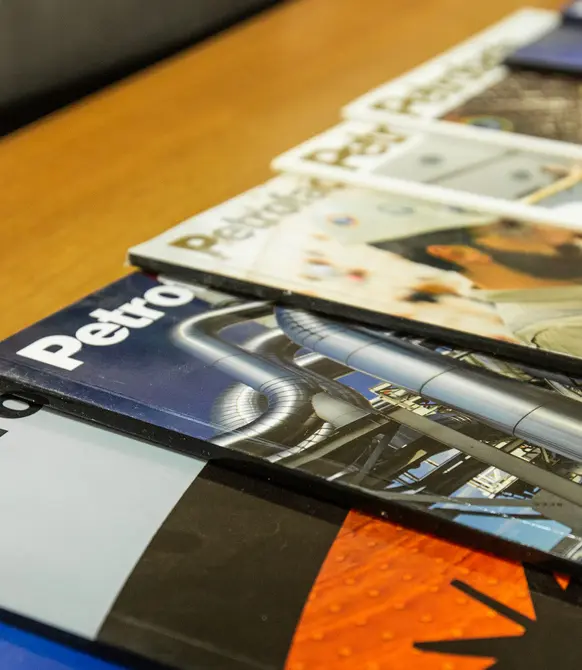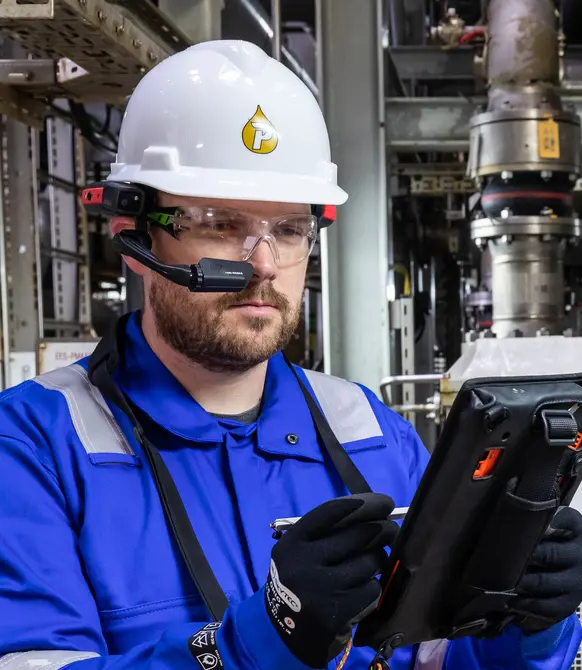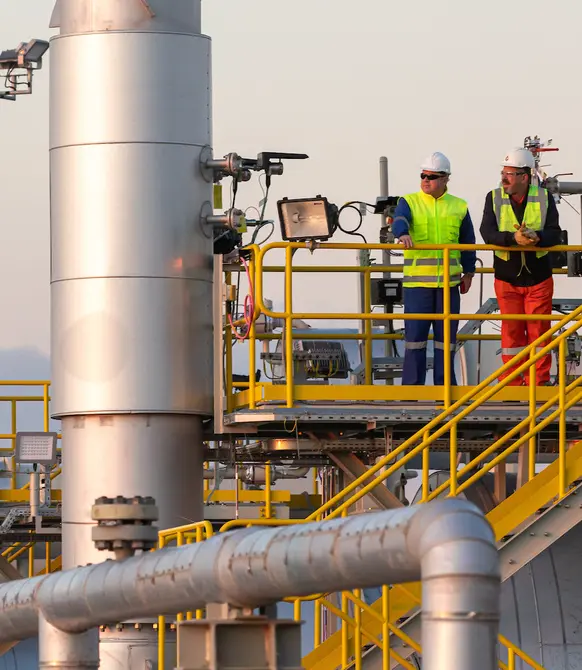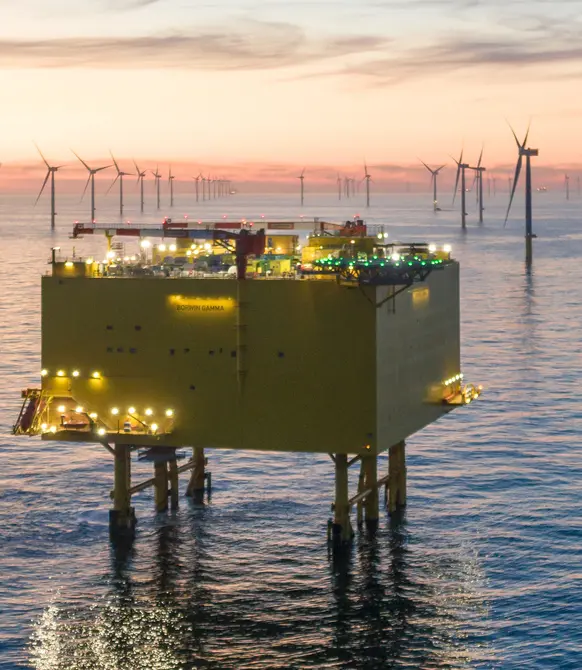Taking a leap of faith down under
To get a sense of the opportunities and challenges associated with the Northern Endeavour decommissioning project in Australia, we spoke to three people on the team — some of whom have been connected to the facility for many years, and others who are more recent arrivals.
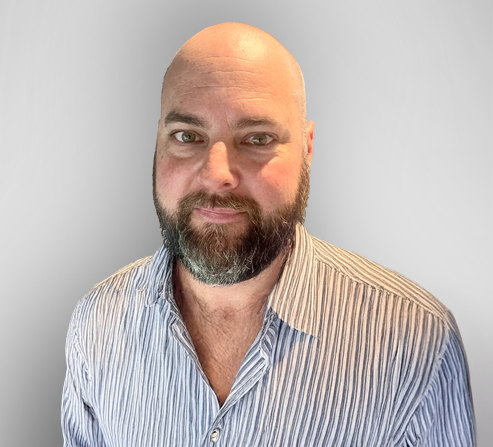
Adrian Long
A long, long way from anywhere
One of the big challenges of the Northern Endeavor decommissioning project is its remote location. The nearest airbase is 400km away, the nearest port is 560km, and these, in turn, are 4,000km from Petrofac’s main operational base in Perth (which is equivalent to the distance from Aberdeen to Beirut). This has a big knock-on impact for logistics. To get a sense of the challenges — and how they’re overcome — we spoke to Logistics Superintendent Adrian Long.
I started out in logistics in the backdock of my local supermarket… I’d gone to university to learn to be a schoolteacher, but I also began working part-time in warehousing, which I enjoyed, and things snowballed from there. The big change came around ten years ago, when I landed a logistics job on the construction of Chevron’s Gorgon Project, at Barrow Island, Western Australia — and I’ve been in oil and gas ever since.
The idea of the Northen Endeavour project really excited me… in Australia’s oil and gas circles, it’s a significant, high-profile project, with close scrutiny and a complicated history, so that intrigued me. Then there were the challenges. In terms of the logistical demands, it’s actually a relatively small project. What makes it complex and interesting is the vast distances, the scarcity of resources, the costs, and also the climate.
When Petrofac people come over to visit from Aberdeen, this is the thing that really strikes them… They’re maybe used to the situation in the North Sea, where everything is close by, there are lots of flights, great infrastructure, and plenty of support vessels. If an emergency spare part is needed, you can probably get it fulfilled from a warehouse in say Greater London within a couple of days. That’s never going to happen on the Northern Endeavour.
The distances we are dealing with can be difficult to comprehend… Our closest airbase is 400km away — or a 90-minute flight (and it’s an old WWII facility, located in the middle of the bush, on a remote peninsula, which doesn’t even have any roads leading to it). The closest commercial port is 560km away in Darwin — a 36-hour voyage (and Darwin may be the regional capital, but it’s actually quite a small city, maybe half the size of Aberdeen, with limited infrastructure). Most things we need are trucked in from Perth… but, at 4,000km, that’s a four-to-five day journey. As, you can imagine, the costs are eyewatering and quickly add up. So, as a team, we need to plan as far ahead as possible and stay super-organised.
The competition for resources is pretty intense… There’s very little capacity here. Most of the supply vessels are supporting facilities with active production, so there’s never much availability on the ad hoc or spot market. It’s another reason why we have to plan a long way in advance.
The climate brings another layer of complexity… It’s very hot, it’s very humid, the rain is often torrential and, across our logistics footprint, there’s a real risk of tropical cyclones, flooding, and also wild fires. When you factor in the extended distances and journey times, the potential for issues escalates. Also, in the summer months, our helicopter flights are severely affected. The heat and the humidity have a big impact on helicopter performance — so payloads have to halve in size and weight.
To my mind, good logistics is about keeping things ticking along, even when things go bad… my starting premise is that, no matter how careful we are, we will face logistics issues. It’s in the nature of this type of project. So we always need a fall back or a Plan B. And I’m lucky enough to have a great team supporting me, with one logistics coordinator based here in Perth and another two in Darwin.
I’d say that a good logistics team needs to combine many different qualities… We have to be highly organised, obviously. We also need to wear multiple hats — to deal persuasively with our suppliers, empathetically with our colleagues, and diplomatically with absolutely everyone. But we’ve also got to think everything through. It’s a bit like a chess player. We need to think two or three steps ahead, factoring in the moves, the likely countermoves, and all the associated permutations.

Catherine McKenzie
Moving down under
As well as opening up vacancies for existing team members, a large, high-profile project like the Northern Endeavor can bring career development opportunities to people from across the Petrofac organisation. A case in point is Operations and Integrity Superintendent Catherine McKenzie, who was previously based in Aberdeen. We spoke to Catherine about her career journey, the opportunity to move to Perth, and how she’s adapting to life down under.
My first experience of Petrofac was as a placement on my degree programme… I was studying Civil & Structural Engineering at the University of Aberdeen, saw an opportunity to work over the summer for one of the Petrofac project teams, and I immediately liked the people and the feel of the organisation. I then applied to several graduate trainee schemes and got a few offers. But I’d really enjoyed my Petrofac experience, so decided to join its graduate programme, and have been here ever since. Initially, I was in the Projects team, working on the construction of a gas plant on the Shetland Islands. Then I moved to the Asset Integrity team and started specialising in structural integrity. And, from there, I moved into operations to support the FPF-1, a semi-submersible in the North Sea.
I was perfectly happy working in Aberdeen when, out of the blue, I got a phone call from Perth… The Engineering and Integrity Manager, who I’d previously worked with in Aberdeen, said, “Do you fancy coming down here for a while?” And, to be honest, I wasn’t that enthusiastic. I remember discussing it with my father, and we decided that it didn’t mean a step-change for my career, nor did I have any strong yearning to go to Australia, so why bother? In the meantime, the Engineering and Integrity Manager had been offshore to visit the facility, and he got back on the phone and said, “Listen, I really need you here for a little while.” So, somewhat reluctantly, I applied for a four-month visa and, in July 2022, I made my way to Perth.
It turned out to be a really interesting job… That’s what persuaded me to stay on a bit longer. Then, I stayed, and I stayed, and I stayed, and I’m now applying for permanent residency. The job offers a fascinating mix of different challenges. There’s never a dull moment. And it’s a great bunch of people.
Yes, Australia is nice. But Scotland’s nice too… To be honest, I’m not that much of a beach lover, or a summer lover, but the winters are good. And, in many ways, Perth is like Aberdeen. It’s got a big-town-small-city feel to it, which means you get the urban lifestyle, with an easy escape to the countryside. It’s also very international.
In many ways, this is an operational role… Yes, the Northern Endeavour is classified as a project, and we’re working towards a clearly defined end point. But, in the meantime, we’re working through a roster of operations-type tasks. The way you manage an asset doesn’t really change anywhere in the world. But the circumstances here do make for a massive conceptual change — in terms of the vast distances, the sparse infrastructure, the state of the facility, and the obsolescence of so much of its equipment.
If we’d picked this job up in 2014, when decommissioning was first being considered, it would have been a very different story… we’d have been able to take an integrated approach, handling the late life production, while simultaneously planning for its managed decline, gradually reducing the maintenance and running down the repairs, and moving seamlessly into decommissioning. But the reality is that we now have a very run down facility. So, we need to adapt to the circumstances, keep everyone safe, and take a risk-based approach to everything we do.
When I arrived, there were only about 15 people in the Perth office… Three years later, and we’re up to 100 people. But we’ve still retained the camaraderie of a small office environment. I know pretty much everyone here. It’s also very international, with a handful of people from Aberdeen, and others from around the world.
I’d encourage anyone to work internationally… Even if, like me, you weren’t actively looking for it, I’d say, “What’s the worst that can happen?” Particularly if you’ve got few ties and you can up-sticks and go, you should just go for it. If things don’t work out, you can always go home. What’s to lose?
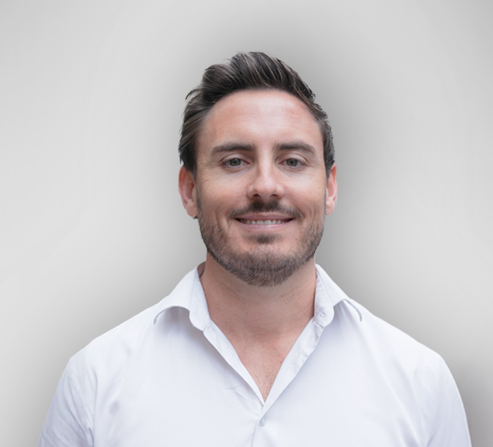
Scott Mclean
Taking a leap of faith
There are several people who have seen rapid career progression through the Northern Endeavour project, and a great example is Operations Manager Scott McLean. When he started working on the facility, in the mid-2010s, he was a Production Operator Trainee for Woodside Energy. He rose through the ranks at Upstream Production Solutions and returned to the facility with Petrofac, first as Transition Manager, and then Offshore Installation Manager, before his promotion to Operations Manager in 2024. We asked Scott about his journey and any advice for similarly ambitious people.
I’d always been intrigued by the world of oil and gas… My father worked in the industry, and always seemed to be jetting off to magical, faraway places like India, or China, or Russia. So, it was always in the back of my mind. Then, when I was in high school, I got interested in electrical trades, and that was set to be my route into the industry. I did my electrical trades certificates, then the extra qualifications needed for this sector, like high voltage switching, and hazardous areas. Then I got sidetracked, starting my own electrical business and specialising in traffic management systems, plus quite a bit of work for the mining sector. I really loved the lifestyle and the challenge of running my own business, and often wonder what would have happened if I’d continued on that path.
Everything changed when I was offered an operator traineeship with Woodside Energy… That was a really big decision to make, which first led me offshore, and onto the Northern Endeavour. I must admit, I was initially tempted by the rotation periods on offer back then, with three weeks on then four or five weeks off, which gave me the opportunity to go travelling on my off-swings. Plus, there was a great group of people on the team, many of whom we’re lucky enough to still have onboard now. By the time I’d finished the traineeship, I’d been through almost all the operational roles, which gave me a great, end-to-end grounding in the way the facility works.
When Woodside sold the facility, I went across to the new operator, and worked my way up… Within a few years, I went from Operations Technician, to Control Room Operator, to Production Supervisor, to Relief Offshore Installation Manager. It was a fast-moving time, I kept putting myself out there, and the opportunities kept coming. Then, with the challenges being faced on the facility, it was time for another difficult decision, and I moved to the Shell Prelude, where I went into training and assessing.
When I came back to the Northern Endeavour as Transition Manager, it was a real leap of faith… I could have spent the next thirty years with a major IOC, in a safe, comfortable job, with a great roster, earning decent money. Or I could step into the unknown with a company I hadn’t really heard of, with a theoretical opportunity and high levels of responsibility, but no real guarantees for the future. It was another of those difficult decisions. But I took the leap, and I loved it — hitting the ground running in a very dynamic, very challenging, very rewarding, very interesting situation.
After a couple of years as Offshore Installation Manager, I was offered the role of Operations Manager… At the time, I was fully committed to seeing the project through from an offshore perspective. But I also realised this would be a great opportunity to continue to grow my skill set and see a different side of the business. Also, in my spare time, I’d been studying for an MBA and had just graduated, which tied in nicely. And that’s the great thing about Operations Management — it touches every single aspect of the business, like cost control, logistics, HR, safety, legal, business development and commercial, and you get to see how all these facets interact together.
The fact that someone like me has been offered the roles I’ve taken on speaks volumes about Petrofac… It’s a company that’s committed to finding the best solutions, not the obvious ones. Also, a great thing about Petrofac is the results-driven culture. You always have opportunities to get noticed. You always have opportunities to step a bit outside of your comfort zone. You always have opportunities to offer new solutions. And, as long as you prove yourself, and work as part of a team, the opportunities just keep on coming.
My advice to anyone who wants to accelerate their career journey is to put yourself out there… Even if you’re in a very specific role, don’t limit yourself to your current responsibilities. There are always opportunities to get your voice heard. And, if you see something you’d be interested in, ask the question. The other thing to do is recognise that this is a high-pressure environment — so always treat everyone with respect, keep your cool, and recognise that you’re all part of the same team.
On a project like the Northern Endeavour, it can be difficult to retain good people, but Petrofac has managed it… When you’re working towards a finite endpoint, which is getting closer all the time, you’d expect people to be conscious of their careers and to look around for other opportunities. But we have a great record of staff retention and so have our contractors. I think that says a lot about Petrofac’s ability to keep people interested, keep them motivated, keep giving them opportunities, and show them there’s a strong commitment to their welfare and career development.


